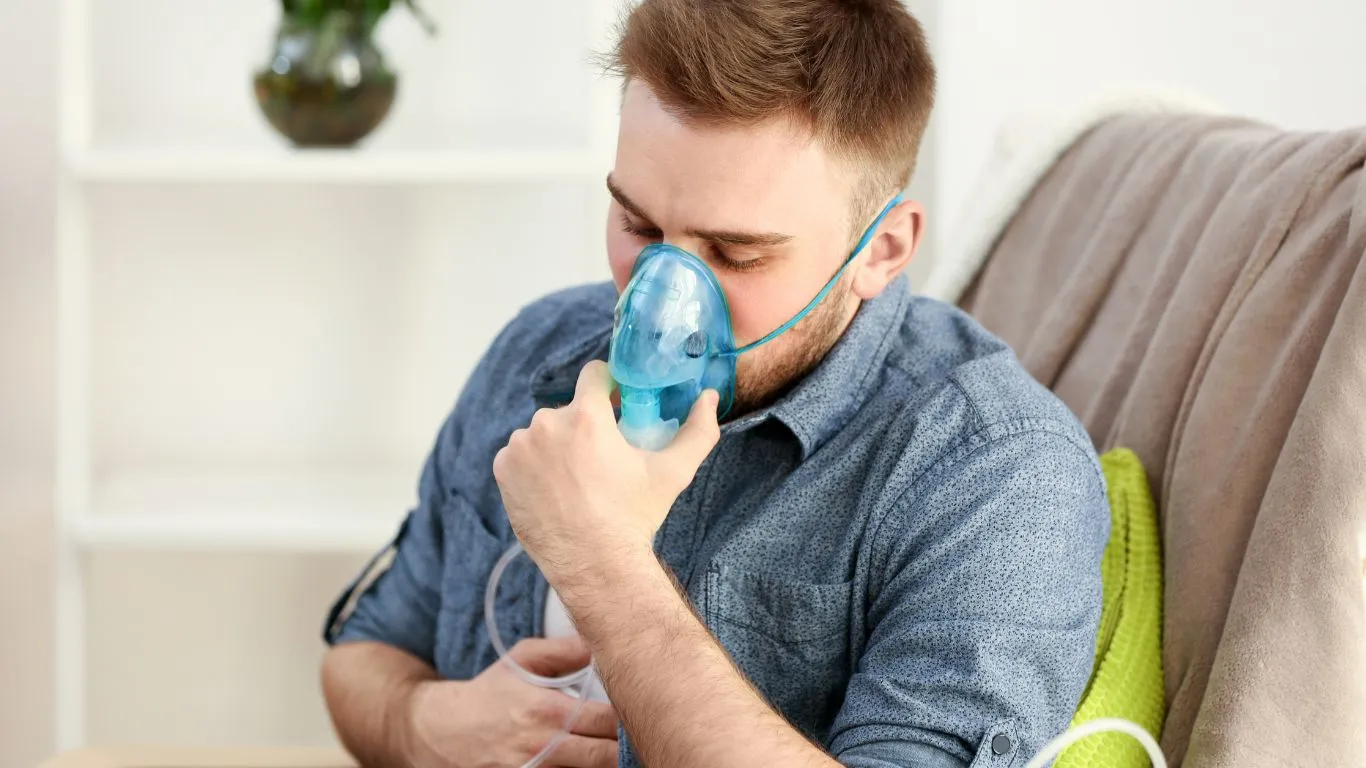Best Treatments for Chronic Asthma Symptoms 🌬️ (Because Breathing Shouldn’t Be a Struggle)
Hey, I get it. If you’re dealing with chronic asthma, managing your symptoms can sometimes feel like an uphill battle. The wheezing, the coughing, the shortness of breath… it’s exhausting. But here’s the thing: there are treatments out there that can seriously help.
I’m not just talking about the usual stuff you’ve heard about; we’ll dive into the best treatments that actually make a difference, plus share some real-life stories, troubleshoot those common issues, and leave you with tips to make living with asthma just a little easier.
What’s Chronic Asthma Anyway? 🌫️
Okay, let’s quickly go over the basics. Chronic asthma is a long-term condition where your airways are always a bit inflamed. When something triggers it – maybe pollen, dust, or even stress – your airways tighten, and bam, you’re gasping for air.
The Best Treatments for Chronic Asthma Symptoms 💊
Now, let’s get into the good stuff. Here’s a breakdown of the top treatments that can actually help you manage your asthma:

1. Inhalers (Yes, You’ve Heard of Them) 🫁
Inhalers are probably the first thing that comes to mind when you think about asthma treatment. And for good reason – they work!
– Rescue inhalers give you that quick relief when you’re in a tight spot. You know, the times when you feel like you can’t catch your breath? That’s when these come to the rescue.
– Long-term inhalers are more like your daily vitamins. They help keep your airways open and prevent flare-ups from happening in the first place.
2. Corticosteroid Inhalers 🔥
I know, I know – the word “steroid” sounds a little intense. But corticosteroid inhalers are like the peacekeepers for your lungs. They help reduce inflammation, which is a major culprit behind asthma flare-ups.
These are typically used for long-term control, so if you’re dealing with regular asthma attacks, this could be a game-changer.

3. Leukotriene Modifiers 🧑⚕️
Okay, let’s get a little technical for a sec. Leukotrienes are chemicals in your body that can cause inflammation in the airways. Leukotriene modifiers work by blocking these chemicals, helping to prevent asthma symptoms.
I’ve seen people who didn’t respond well to inhalers but had success with these oral meds. Definitely worth asking your doc about if inhalers aren’t cutting it.
4. Biologics (The Big Guns) 💉
When asthma gets really severe and nothing else seems to work, biologics come in to save the day. These are super targeted treatments that go straight for the molecules causing inflammation.
You usually get them through injections (yep, it’s a bit of a hassle), but the results can be life-changing for people with severe asthma.

5. Peak Flow Monitoring 📊
Peak flow meters are small devices that measure how fast air can move out of your lungs. Keeping track of your peak flow can help you spot early signs of a flare-up – kinda like having a heads-up before things get bad.
I’ve found it super helpful when I’ve felt like my asthma was getting out of control. Having that extra info makes it easier to manage.
Troubleshooting Common Issues with Asthma Treatments 🔧

Even when you’re using the best treatments, stuff can go wrong. Here are some common issues and how to deal with them:
Issue #1: Using Your Inhaler Wrong 🤔
I’ll be the first to admit that inhalers can be tricky. There’s a certain technique to get the full effect, and if you’re not using it right, you’re basically wasting the medicine.
Solution: Next time you see your doctor, ask them to go over the technique with you. It’s one of those things that makes a huge difference when you do it properly.
Issue #2: Side Effects from Medication 🏥
Corticosteroid inhalers are great, but they can sometimes cause a sore throat or even thrush (the white stuff in your mouth). It’s annoying, but it’s not the end of the world.
Solution: Just rinse your mouth after using your inhaler to avoid these issues. If it’s really bothering you, talk to your doctor – they might be able to switch you to a different medication.
Issue #3: Forgetting to Take Your Meds 🗓️
I get it – life gets busy, and sometimes, it’s easy to forget your daily meds. But missing doses is one of the fastest ways to end up in an asthma flare-up.
Solution: Set an alarm or use a pillbox. Staying consistent is key to keeping your asthma under control.
Real-Life Stories – Success with Asthma Treatments 💬
Success Story 1: Anna’s Biologic Breakthrough
Anna had battled severe asthma for years. She’d been in and out of the ER more times than she could count. After trying multiple treatments, her doctor suggested biologic therapy. She was skeptical, but after just a few weeks of treatment, she felt like a new person. Anna’s asthma is now under control, and she’s able to live a much more active life without constantly worrying about an attack.
Success Story 2: John’s Peak Flow Game
John, who’s in his 50s, was always pretty good about managing his asthma. But what really made a difference for him was peak flow monitoring. He started tracking his lung function every morning and quickly noticed patterns – like when he was more prone to flare-ups. Now, he’s able to take action before his symptoms get worse.
Key Takeaways / Summary 📝
• There are plenty of treatments to keep chronic asthma in check, including inhalers, corticosteroids, and biologics.
• Don’t forget about peak flow monitoring – it can help you spot issues before they get bad.
• Common issues like inhaler mistakes or medication side effects are fixable – talk to your doctor!
• Consistency is your best friend when it comes to managing asthma.
FAQs about Chronic Asthma Treatments ❓
Q1: How quickly do asthma medications work?
Rescue inhalers are super fast – they’ll help you feel better almost immediately. But for long-term control, meds like corticosteroids take a little longer to work.
Q2: Can asthma be cured?
Unfortunately, no cure yet. But with the right treatments, you can manage symptoms and live a full life.
Q3: What should I do if my asthma gets worse?
If your symptoms suddenly get worse, use your rescue inhaler and call your doctor. If things don’t improve, get medical help ASAP.
Q4: Are natural remedies effective for asthma?
Some people swear by things like breathing exercises or essential oils, but don’t ditch your prescribed meds for these. Always check with your doctor before trying anything new.
References 📚
National Institute of Allergy and Infectious Diseases (NIAID)
American Lung Association – Asthma
Disclaimer ⚠️
Just a heads up – this post is for informational purposes only and not a substitute for professional medical advice. Always talk to your doctor before making changes to your treatment plan.
Call to Action 📢
Ready to take control of your asthma? Chat with your doctor about the best treatment options for you. With the right plan, you can breathe easier and feel more in control of your life.

Bianca Nala is a skilled writer with a deep focus on respiratory disorders. Her articles on Healthusias.com reflect her expertise, providing readers with reliable and engaging insights into respiratory health.






